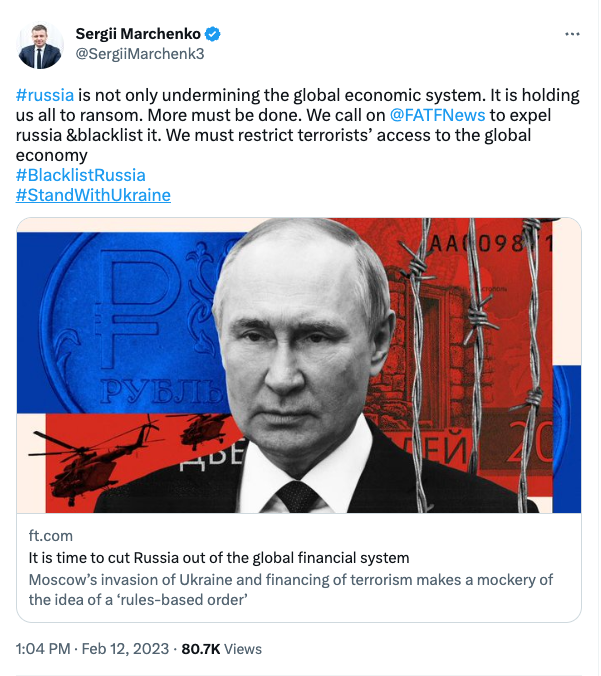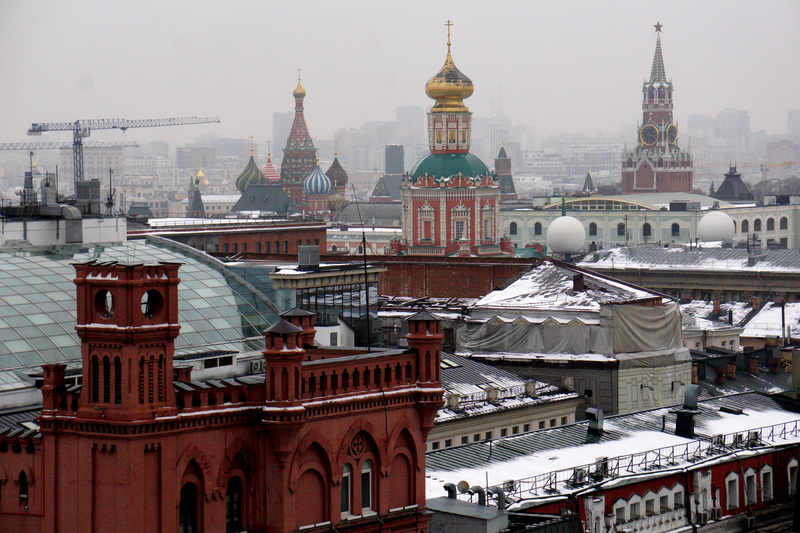International money-laundering watchdog the Financial Action Task Force (FATF) has suspended the Russian Federation from membership. Russia, which has been a member since 2003, is the first country to be suspended.
“The Russian Federation’s actions unacceptably run counter to the FATF core principles aiming to promote security, safety, and the integrity of the global financial system,” the FATF’s statement says. “They also represent a gross violation of the commitment to international cooperation and mutual respect upon which FATF Members have agreed to implement and support the FATF Standards.”
The watchdog has also called upon all jurisdictions “to remain vigilant of threats to the integrity, safety and security of the international financial system arising from Russia’s war against Ukraine”.
Combating money laundering
Russia remains obliged to implement FATF Standards and must continue to meet its financial obligations. However, the country will remain a member of the Global Network as an active member of the Eurasian Group on Combating Money Laundering (EAG), and will retain its rights as an EAG member.
The FATF will monitor Russia and its future actions, and discuss at each plenary meeting whether to lift or modify these restrictions.
The suspension follows a campaign by the Ukrainian Minister of Finance Sergii Marchenko, who wanted FATF to add Russia to the ‘FATF blacklist’ for not complying with the organization’s standards.
“This is the time to sanction Russia as a terrorist state it has become,” Marchencko said on Twitter.

After the FATF announced the sanction, the Ukraine Ministry of Finance described it as an “important step that will help protect global financial system”.
“The world now understands the realities of Russia’s war against Ukraine and the risks Russia poses to the international financial system. Russia’s FATF suspension is a clear signal that all actors must exercise extreme caution when attempting any transactions with the Russian financial system”, said Sergii Marchenko.

More sanctions
FATF was not the only organization to sanction Russia last week. The Office of Foreign Assets Control (OFAC) also announced sanctions against 22 individuals and 83 entities in relation to the key funding sources metals and mining sector.
“The Russian Federation’s actions unacceptably run counter to the FATF core principles aiming to promote security, safety, and the integrity of the global financial system.”
The Financial Action Task Force
Last week, marking one year since the invasion, Andrew Davies, the Global Head of Regulatory Affairs at ComplyAdvantage, wrote for us commenting on the impact of a year of sanctions.
”First, there needs to be far more international collaboration involving intelligence agencies, regulatory bodies, and financial institutions. For sanctions to be effective, they need to be immediate,” he said.
“If sanctions are to be more than performative political theater and to have the impact that was originally intended, now is the time to acknowledge and address the weaknesses in the system in preparation for the next international conflict.”
Nigeria and south Africa were also added to FATF’s watchlist, which means they will be subject to increased monitoring.
The Financial Action Task Force (FATF)
FATF is an intergovernmental organisation and financing watchdog, founded on the initiative of the G7. Its mission is to fight global money laundering and terrorist financing, and set international standards that aim to prevent illegal activities and the harm they cause to society. That includes illicit funds linked to drugs trafficking, the illicit arms trade, cyber fraud and other serious crimes. The FATF is a policymaking body that works to generate the necessary political will to bring about national legislative and regulatory reforms.
The organization was established in 1989, has 39 member bodies, and is based in Paris.
Today, more than 200 countries and jurisdictions have committed to implement the FATF’s Standards.
The FATF black list: Countries or jurisdictions that have serious strategic deficiencies to counter money laundering, terrorist financing, and financing of proliferation are subject to the black list.
Source: fatf-gafi.org

















